Stanford University Recap
 This past weekend, I lectured at Stanford University on the "Reclaiming of Words and Ideas." Reclaiming cultural icons, symbols, language, and ideas (otherwise known as reappropriation) has something that has been occurring through nearly every social strata of human history for thousands of years. In recent decades, social justice activists have been using this tactic to call out institutional racism, to empower their communities, and to reduce the negative impact of racial languages or stereotypes.
This past weekend, I lectured at Stanford University on the "Reclaiming of Words and Ideas." Reclaiming cultural icons, symbols, language, and ideas (otherwise known as reappropriation) has something that has been occurring through nearly every social strata of human history for thousands of years. In recent decades, social justice activists have been using this tactic to call out institutional racism, to empower their communities, and to reduce the negative impact of racial languages or stereotypes. However, this process isn't used exclusively in social justice circles - it's commonly used in marketing and advertising as well. For example, Wieden + Kennedy, one of the leading advertising agencies in the world, is most known for their idea turning negative stereotypes and assumptions into positive attributes. They helped rebrand Old Spice to compete against younger (and hipper) brand such as Axe Body Spray through the "experience is everything" campaign...which pretty much saved the company. Chrysler Motors did something similar to shake the reputation of American-made cars by proudly claiming they were "Importer from Detroit."Until recently, the idea of reappropriation hasn't been widely studied. Even amongst community groups who do reclaim racial slurs, there has been some disagreement to the actual impact over the balance of power. But that is slowly changing. Studies such as The Reappropriation of Stigmatizing Labels: The Reciprocal Relationship Between Power and Self-Labeling (Galinksy, et al.) are presenting some interesting evidence on how powerful language really is. As communicators, businesses, brands, and members of society, this certainly leads to some interesting implications.Anyway, the conference itself was an amazing experience. The students were incredibly sharp and responsive. Together, we helped discuss possible guidelines over how reclaiming ideas can work (for example, context/intent matters greatly and words can only be reclaimed/used by members of the target group). I find it incredibly encouraging that there is an upcoming generation of caring students who seek to continue this conversation and use it to make an impact in their communities.For more information on appropriate language, read How to Reach Out to Diverse Audiences Without Being Offensive.
However, this process isn't used exclusively in social justice circles - it's commonly used in marketing and advertising as well. For example, Wieden + Kennedy, one of the leading advertising agencies in the world, is most known for their idea turning negative stereotypes and assumptions into positive attributes. They helped rebrand Old Spice to compete against younger (and hipper) brand such as Axe Body Spray through the "experience is everything" campaign...which pretty much saved the company. Chrysler Motors did something similar to shake the reputation of American-made cars by proudly claiming they were "Importer from Detroit."Until recently, the idea of reappropriation hasn't been widely studied. Even amongst community groups who do reclaim racial slurs, there has been some disagreement to the actual impact over the balance of power. But that is slowly changing. Studies such as The Reappropriation of Stigmatizing Labels: The Reciprocal Relationship Between Power and Self-Labeling (Galinksy, et al.) are presenting some interesting evidence on how powerful language really is. As communicators, businesses, brands, and members of society, this certainly leads to some interesting implications.Anyway, the conference itself was an amazing experience. The students were incredibly sharp and responsive. Together, we helped discuss possible guidelines over how reclaiming ideas can work (for example, context/intent matters greatly and words can only be reclaimed/used by members of the target group). I find it incredibly encouraging that there is an upcoming generation of caring students who seek to continue this conversation and use it to make an impact in their communities.For more information on appropriate language, read How to Reach Out to Diverse Audiences Without Being Offensive.
